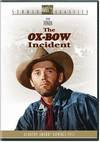Ever since I was a child, and that has been decades ago, I have been in love with movies – especially the movies that were made before I was born. These old movies allowed me to connect with history, which is something that has always intrigued me. While most of these movies were not historically accurate, they did provide a way for me to gauge how the people who made those movies looked at the times that they were depicting and the times in which they were living.
Those two elements of movie-making are at the core of my wonderment. As a black child, it was easy to notice the disparity in the treatment of America's minority and majority populations. I wanted to understand the reasons for this disparity and I looked for signals that indicated this disparity would someday end.
Though I grew up in the white neighborhood of Marble Hill in New York City without any serious problems, when I went to Harlem – where I was born, where my father worked as a podiatrist and owned a dry cleaners, and where most of my parents friends lived – or to Charlotte, N.C., to visit my mother's relatives, I couldn't help but see the very different lives that these people, my people, led.
When I watched movies on television, I saw very few people of color – and the ones that I saw were always in subservient roles and often were made to look ridiculous. The black people that I knew were not ridiculous. My first pediatrician was a black woman, my mother and sister were nurses, my uncle in North Carolina was a banker. There was a huge disconnect between what was my reality and what was displayed on movie screens.
But movies can show not only what was, they can also show what can be. And I was always thrilled to find a movie that spoke to the possibility that those in the majority would one day recognize the accomplishments and the worth of those in the minority. Finding those movies gave me hope that America could really be America and not a country filled with hypocrites, selfishness and hatred.
The reason I want to share my views on these old movies – and occasionally on the current fare of cinematic offerings – is that this history is all-to-often overlooked. Many of us see what is and pay no attention to what was – or the consequences of what was. For example: When I taught middle school English we briefly discussed the Nat Turner slave revolt and the harsh treatment of slaves by some of their masters. One child said he wouldn't have tolerated those conditions and would have preferred to have died fighting for his freedom like Nat Turner. He then added that all the black people of that time should have done that. While I commended his dedication to freedom, I had to point out that if all the black people of that time had followed his advice, there was a very good chance that he would not be alive today – that many are willing to suffer the hardships of today for a better tomorrow, even if they don't get to see that better tomorrow themselves.
We all need to look back at what was to better appreciate what is.
Thursday, February 5, 2009
Subscribe to:
Post Comments (Atom)






























































No comments:
Post a Comment